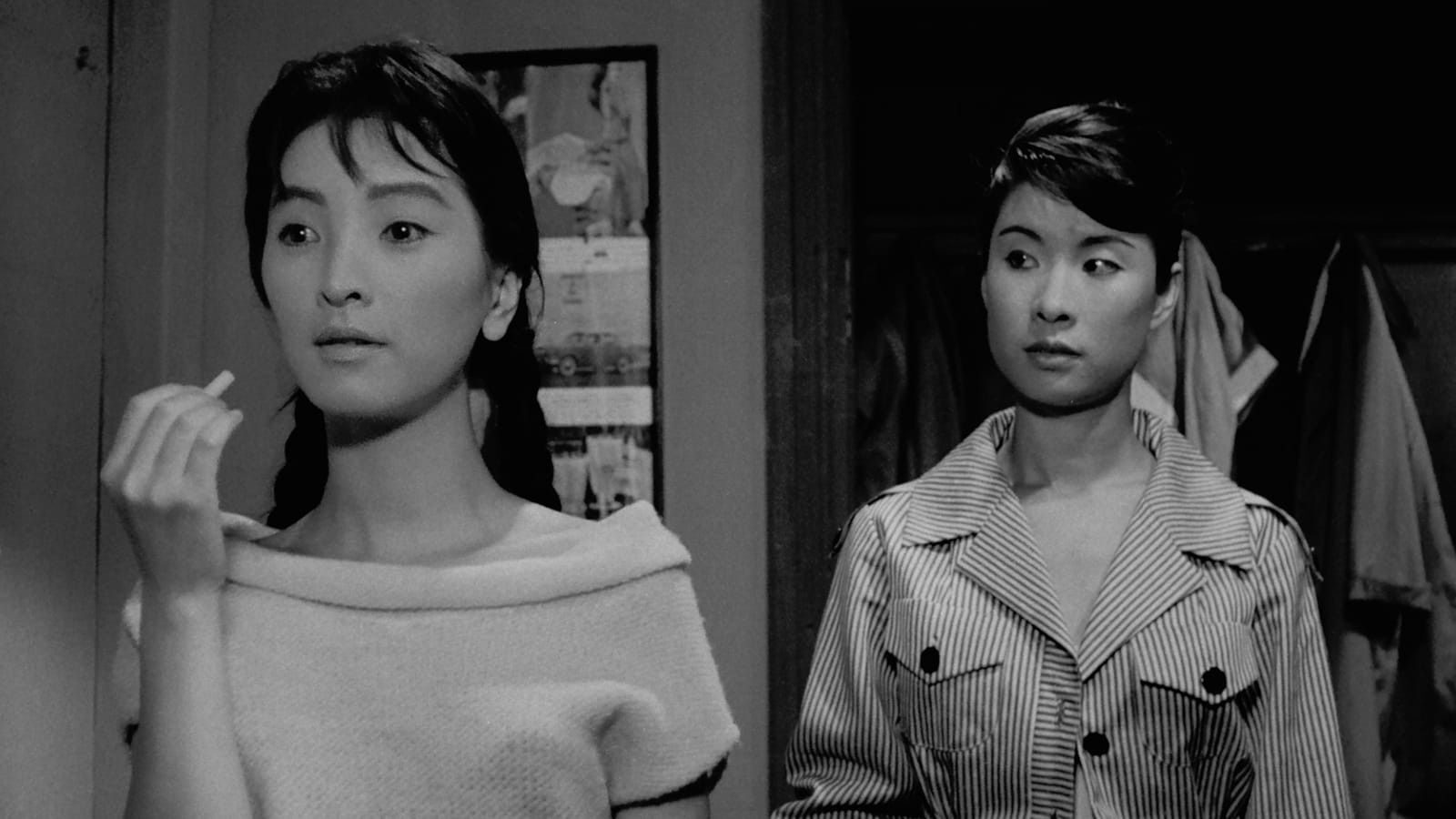In the aftermath of the Korean War, amidst tremendous cultural and socioeconomic change, South Korea’s film industry experienced a renaissance. Bolstered by tax exemption and foreign aid directed at rejuvenating the nation’s film production, South Korean cinema entered a golden age of innovation and flourishing talents that culminated in the 1960s. Film at Lincoln Center is celebrating this golden decade and the diverse films that helped define a national cinema. For the most part, filmmakers throughout this golden age still had to navigate strict government censorship, but the period between presidential administrations from 1960 to 1962 offered a brief respite. Kim Ki-young’s shocking and seminal The Housemaid (1960) was one of the works that benefited from this interlude.
A parable of domestic horror, The Housemaid opens with a husband and wife discussing a newspaper article about a man who fell in love with the family’s maid, and then proceeds to show the viewer how such an appalling event could conceivably happen. The man in question is Mr. Dong-sik Kim (Kim Jin-kyu), a pianist who works at a factory as a choir group leader. He is popular among the female employees, one of whom, Myung-Sook (Lee Eun-shim), he hires as a maid to relieve his pregnant wife (Je Jeung-ryu) of her household duties. Myung-Sook is rebellious, chain-smoking in the closet at work, and perhaps a bit unstable. She relishes in helping the Kims with their rat problem, catching rodents with her bare hands and focusing a little too intently on the rat poison in the cupboard. After many days of spying on Mr. Kim while he plays piano, Myung-Sook finally gets the chance to seduce him one dark, rainy night while the rest of the family is away. Their consummation is a gothic one, with Myung-Sook as the spider-like temptress in the dark, lurking around the corner and sinking her claws into Mr. Kim (Kim Ki-young would explore basically the same story again in 1972 under the title The Insect Woman).
When the affair results in pregnancy, Mr. Kim must come clean to his wife about his indiscretions. Mrs. Kim’s anger and sadness over the betrayal is superceded only by her fear of the scandal that could ensue. She tries to reason with the other woman under her roof and convinces Myung-Sook to suffer an “accidental” fall down the stairs. Afterward, Myung-Sook becomes more erratic and dangerous, holding the family and their newborn hostage in their own home as she threatens to publicly reveal what the Kims forced her to do. Her mere presence upstairs casts a shadow over the domicile, turning the young family’s promising new home into a suffocating nightmare.
Mr. Kim’s moral impotence is on full display, as he proves capable neither of protecting his family from the crazed woman nor denying her advances in the first place. It is left to the women to battle it out for the soul of the household. They come to embody the competing forces at play with Western cultural influence and modernization in South Korea: Myung-Sook representing the destructiveness of feminine desire and impropriety, and Mrs. Kim the self-immolation caused by adhering too strongly to restrictive social mores. As we watch Myung-Sook claw more and more desperately at what she feels is her one chance at love and class mobility, it’s hard not to feel sympathy even as she destroys others in her wake. It’s this charged portrayal of a struggling lower-class woman pushed to the brink by an upper-middle-class family burdened with the pressures of respectability that made The Housemaid such a subversive statement for its time, as well as a formative influence on modern South Korean filmmakers like Bong Joon-ho who repeatedly cited it as a key text as he worked on his international hit Parasite (2019).
The Housemaid screens tonight, September 2, as well as on September 9 and 14, at Film at Lincoln Center as part of the series “Korean Cinema’s Golden Decade: The 1960s.”



